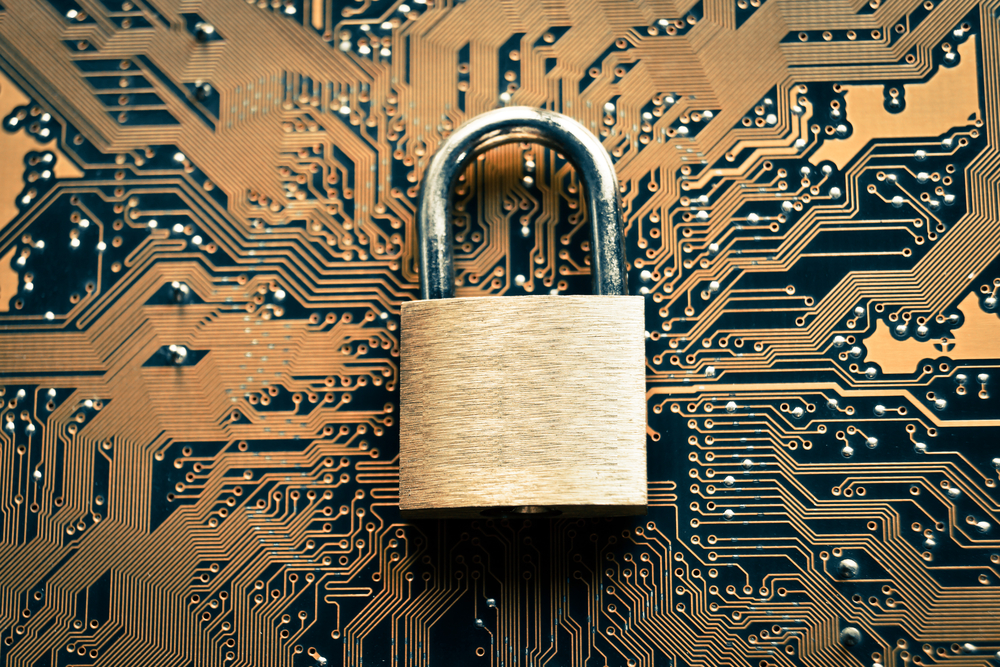UK energy companies face £17m fines for poor cybersecurity
Government penalties come amid fear of nation state cyber attacks


The government confirmed yesterday that it will issue multi-million pound fines to companies who fail to protect the UK's infrastructure from foreign state cyber attacks.
Health, transport, water and energy companies could face fines of up to 17 million if they do not take effective action to prevent cyber attacks and breaches of Britain's critical infrastructure, as part of the government's new Network and Information Systems (NIS) directive.
"Today we are setting out new and robust cyber security measures to help ensure the UK is the safest place in the world to live and be online," said Margot James, minister for digital and the creative industries. "We want our essential services and infrastructure to be primed and ready to tackle cyber attacks and be resilient against major disruption to services."
"I encourage all public and private operators in these essential sectors to take action now and consult NCSC's advice on how they can improve their cyber security."
The new measures, which come into force on 10 May, include an easy-to-use reporting system for security breaches and other IT issues, allowing firms to quickly alert new industry-specific regulatory bodies to any problems.
These regulators will be able to compel companies to improve their security, and will also be able to levy the fines if necessary.
Fines will be issued as a last resort only, the government said, and organisations that have taken all of the appropriate security preparation measures and collaborated with regulators will not be at risk of such penalties.
Sign up today and you will receive a free copy of our Future Focus 2025 report - the leading guidance on AI, cybersecurity and other IT challenges as per 700+ senior executives
The decision comes after proposals for NIS were drawn up and put out to consultation in August. The UK is growing more alert to state actor hacking efforts, amid various countries suffering attacks on their critical infrastructure.
With Russia accused of interfering in the US 2016 presidential election, France withdrew an electronic vote amid fears it could be sabotaged by hackers in June 2017. Meanwhile, an attack dubbed BlackEnergy wiped out much of Ukraine's power grid in 2015, before a similar attack a year later.
In order to help companies comply with the new directive, the National Cyber Security Centre (NCSC) has released in-depth guidance regarding which organisations need to comply, and how to do so.
"Our new guidance will give clear advice on what organisations need to do to implement essential cyber security measures," said NCSC CEO Ciaran Martin. "Network and information systems give critical support to everyday activities, so it is absolutely vital that they are as secure as possible."
Martin warned in an interview with theGuardianthat such an attack on the UK's vital infrastructure is inevitable, stating that "it is a matter of when, not if".
The new regulations come less than a week after UK defence secretary Gavin Williamson warned that a successful Russian attack on Britain's energy network would cause "total chaos" and "thousands of deaths".
Adam Shepherd has been a technology journalist since 2015, covering everything from cloud storage and security, to smartphones and servers. Over the course of his career, he’s seen the spread of 5G, the growing ubiquity of wireless devices, and the start of the connected revolution. He’s also been to more trade shows and technology conferences than he cares to count.
Adam is an avid follower of the latest hardware innovations, and he is never happier than when tinkering with complex network configurations, or exploring a new Linux distro. He was also previously a co-host on the ITPro Podcast, where he was often found ranting about his love of strange gadgets, his disdain for Windows Mobile, and everything in between.
You can find Adam tweeting about enterprise technology (or more often bad jokes) @AdamShepherUK.
-
 Marc Benioff says hiring in software engineering is ‘mostly flat’ at Salesforce because of AI
Marc Benioff says hiring in software engineering is ‘mostly flat’ at Salesforce because of AINews Salesforce CEO Marc Benioff has revealed hiring for software engineering has dipped as a result of AI, but the CRM giant is ramping up recruitment in other key areas to push its agentic agenda.
-
 Are AI browsers a golden opportunity or cybersecurity nightmare?
Are AI browsers a golden opportunity or cybersecurity nightmare?In-depth AI browsers are on the rise despite the concrete risks associated with using them
-
 Veeam patches Backup & Replication vulnerabilities, urges users to update
Veeam patches Backup & Replication vulnerabilities, urges users to updateNews The vulnerabilities affect Veeam Backup & Replication 13.0.1.180 and all earlier version 13 builds – but not previous versions.
-
 Two Fortinet vulnerabilities are being exploited in the wild – patch now
Two Fortinet vulnerabilities are being exploited in the wild – patch nowNews Arctic Wolf and Rapid7 said security teams should act immediately to mitigate the Fortinet vulnerabilities
-
 Everything you need to know about Google and Apple’s emergency zero-day patches
Everything you need to know about Google and Apple’s emergency zero-day patchesNews A serious zero-day bug was spotted in Chrome systems that impacts Apple users too, forcing both companies to issue emergency patches
-
 Security experts claim the CVE Program isn’t up to scratch anymore — inaccurate scores and lengthy delays mean the system needs updated
Security experts claim the CVE Program isn’t up to scratch anymore — inaccurate scores and lengthy delays mean the system needs updatedNews CVE data is vital in combating emerging threats, yet inaccurate ratings and lengthy wait times are placing enterprises at risk
-
 IBM AIX users urged to patch immediately as researchers sound alarm on critical flaws
IBM AIX users urged to patch immediately as researchers sound alarm on critical flawsNews Network administrators should patch the four IBM AIX flaws as soon as possible
-
 Critical Dell Storage Manager flaws could let hackers access sensitive data – patch now
Critical Dell Storage Manager flaws could let hackers access sensitive data – patch nowNews A trio of flaws in Dell Storage Manager has prompted a customer alert
-
 Foreign states ramp up cyberattacks on EU with AI-driven phishing and DDoS campaigns
Foreign states ramp up cyberattacks on EU with AI-driven phishing and DDoS campaignsNews ENISA warns of hacktivism, especially through DDoS attacks
-
 A new 'top-tier' Chinese espionage group is stealing sensitive data
A new 'top-tier' Chinese espionage group is stealing sensitive datanews Phantom Taurus has been operating for two years and uses custom-built malware to maintain long-term access to critical targets
